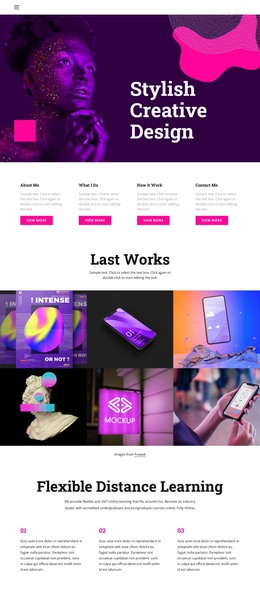In today’s digital-first world, your website is often the first impression of your brand. But beyond aesthetics, does your site bring value to your business and audience? A great website isn’t just a digital brochure—it’s a strategic tool that attracts, engages, and converts visitors.
1. Define Your Website’s Purpose
Every successful website starts with clarity. Are you building a site to:
✅ Showcase your expertise?
✅ Generate leads and sales?
✅ Build a community?
✅ Provide valuable resources?
Understanding this shapes everything—from design to functionality.
2. Prioritize User Experience (UX)
A well-designed website should be:
🔹 Fast – Slow-loading sites kill conversions. Use caching, optimize images, and leverage a CDN.
🔹 Mobile-Optimized – Over 50% of traffic comes from mobile devices. Ensure responsive design is non-negotiable.
🔹 Easy to Navigate – Keep menus intuitive, CTAs clear, and clutter minimal.
3. High-Quality, Engaging Content
Content is the backbone of your brand’s online presence. Focus on:
📌 Compelling Copy – Speak directly to your audience’s pain points.
📌 SEO Best Practices – Optimize pages with relevant keywords, meta descriptions, and structured data.
📌 Multimedia – Videos, infographics, and interactive elements enhance engagement.
4. Strong Brand Identity & Consistency
Your website should reflect your brand through:
🎨 Consistent color schemes & typography
📸 Professional images and graphics
🔍 A clear brand voice and messaging
5. Build Trust & Credibility
People do business with brands they trust. Boost credibility by:
✅ Displaying customer testimonials and case studies
✅ Showcasing certifications or industry affiliations
✅ Ensuring secure (SSL-protected) browsing
6. Seamless Conversion Paths
What’s the point of traffic if visitors don’t take action? Optimize for conversions by:
🎯 Clear CTAs – Guide visitors towards booking, purchasing, or subscribing.
📝 Lead Magnets – Offer value (ebooks, discounts, free trials) in exchange for emails.
📊 A/B Testing – Continuously tweak landing pages for better performance.
7. Performance & Maintenance
A website isn’t set it and forget it—it requires ongoing optimization:
🔹 Regular updates (WordPress core, themes, plugins)
🔹 Speed audits & performance checks
🔹 SEO and content refreshes to stay relevant
Final Thoughts
Your website should work for you, not against you. By focusing on user experience, branding, and conversion-driven strategies, you can turn your site into a valuable asset that fuels your business growth.
Need help optimizing your WordPress site? Let’s build something impactful!
Share this:
- Click to share on Facebook (Opens in new window) Facebook
- Click to share on X (Opens in new window) X
- Click to share on LinkedIn (Opens in new window) LinkedIn
- Click to share on Reddit (Opens in new window) Reddit
- Click to share on Pinterest (Opens in new window) Pinterest
- Click to share on Pocket (Opens in new window) Pocket
- Click to share on WhatsApp (Opens in new window) WhatsApp
- Click to email a link to a friend (Opens in new window) Email



